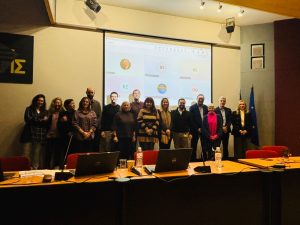Information Society continues to lead the way, pioneering new strategies that promote sustainability through digital transformation.
Its upcoming actions aim to create a more efficient, environmentally friendly and socially just public sector, adapted to modern needs.
Taking the lead in the public sector, it has included digitally sustainable development in its strategic objectives. Knowing how to harness the potential of technology and with the ability to listen to the needs of society, it continues to responsibly provide digital services in a way that meets the challenges of the time for a sustainable future.
Using appropriate software, it collects data, records and generates reports to monitor and record the progress of its actions, but at the same time monitor the developments of actions at national and European level. The development of the reporting system, third party good practices and the evaluation of its actions contribute to monitoring the achievement of the objectives and establishing it as a digital hub for sustainable development.
In addition, in order to monitor and evaluate actions, it has integrated in its procedures the ISO 14001:2015 – Environmental Management System and ISO 26000:2010 – Corporate Social Responsibility Management System.
Information Society has produced a guide to green contracts seeking to progressively integrate environmental criteria into its tenders and contracts for goods, services and projects that have a smaller environmental footprint throughout their life cycle, compared to similar goods and services that would otherwise be selected.
The cost-effectiveness of a product or service needs to be redefined to include the concept of environmental and social impacts, such as reducing waste and emissions, and increasing efficiency in their use. Procurement with sustainable criteria of cost-effectiveness, healthy competition and ethical management of resources.
Education and information on the Sustainable Development Goals are key pillars of action at Information Society. The creation of training programmes and interactive platforms enhances understanding regarding SDGs among civil servants and citizens. The use of digital tools such as videos, graphics and quizzes makes the process accessible and attractive to all. At the same time, workshops and publicity days promote the exchange of good practices and the cultivation of a culture of sustainability.
Lastly, Information Society applies sustainable practices to its daily operations, and to the three ESG pillars: in the Environment (E) pillar, by reducing paper consumption, using recycled materials, saving energy and promoting sustainable transport; in the Society (S) pillar, by upholding rules of equality, respect and inclusion for its employees and empowering them through a variety of corporate social responsibility actions; as well as in the Governance (G) pillar, by enhancing the transparency of procedures and strengthening its anti-fraud mechanisms.
Eleni Dede:
Director of Communication and Sustainable Development of
“Information Society S.M.S.A.”












